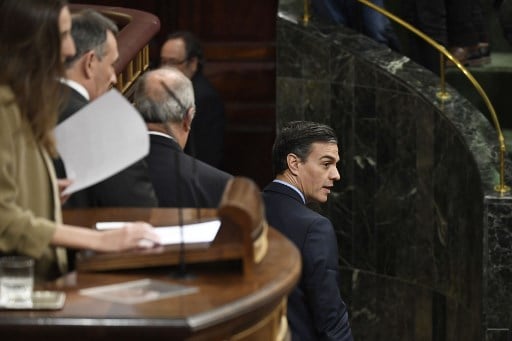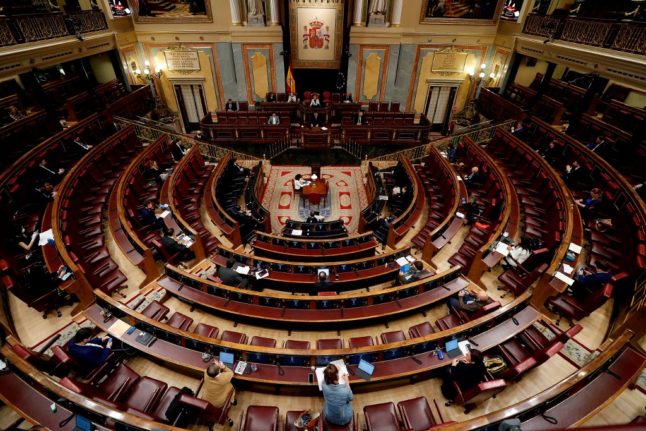Just over three weeks after the vote, lawmakers were on Tuesday taking the oath of office, although there was little indication of when a government would be formed.
The legislature has been gridlocked since an inconclusive April election which the Socialists won but without a majority — in an outcome repeated on November 10th, leaving Pedro Sanchez a winner but weakened.
And this time, Vox more than doubled its showing, snaring 52 of the parliament's 350 seats.

Far-right wing Vox party's members of parliament Ivan Espinosa de los Monteros (L) and Santiago Abascal arrive for the first parliamentary session. Photo: AFP
Just days after the election, Sanchez and the radical leftwing Podemos agreed in principle to form a coalition government in what would be the first such power-sharing deal in the country's modern history.
Such a government would only have 155 seats, leaving it dependent on support from other factions to pass an investiture vote for which it would need a minimum of 176.
Sanchez's negotiating team began talks with the Republican Left of Catalonia (ERC), a Catalan separatist party which won 13th seats in November's election but has so far refused to offer its backing.

Podemos party's members of parliament Irene Montero and Pablo Iglesias take their seats for the first parliamentary session. Photo: AFP
In exchange for support, the party wants talks on the Catalan crisis, which would likely touch on its demand for a referendum on self-determination, an issue completely ruled out by Madrid.
The two parties are due to hold fresh talks on Tuesday.
The ERC is headed by Oriol Junqueras, one of nine Catalan leaders handed heavy jail terms in October over a failed 2017 independence bid in a move which sparked a wave of mass protests, some of which turned violent.



 Please whitelist us to continue reading.
Please whitelist us to continue reading.
Member comments